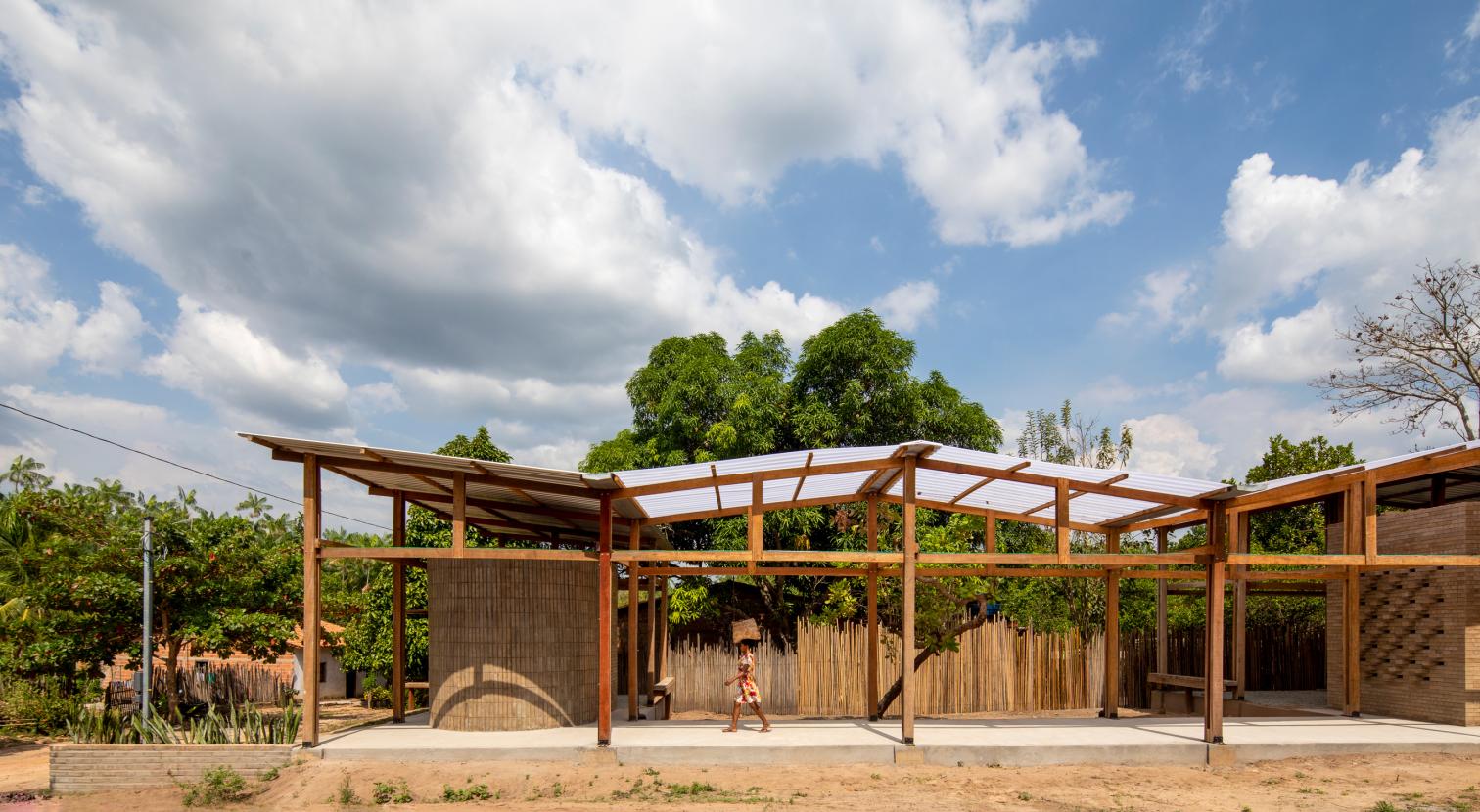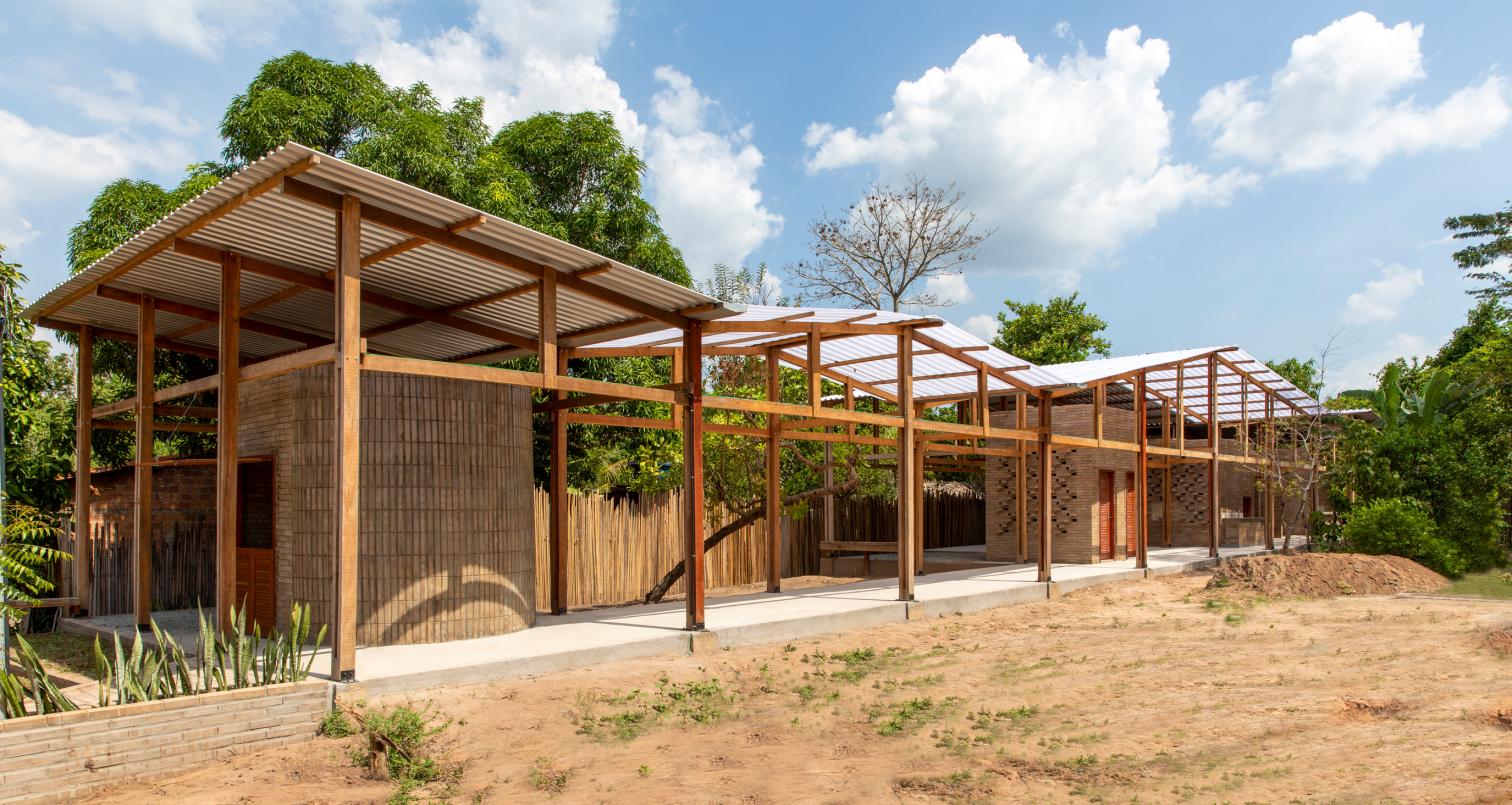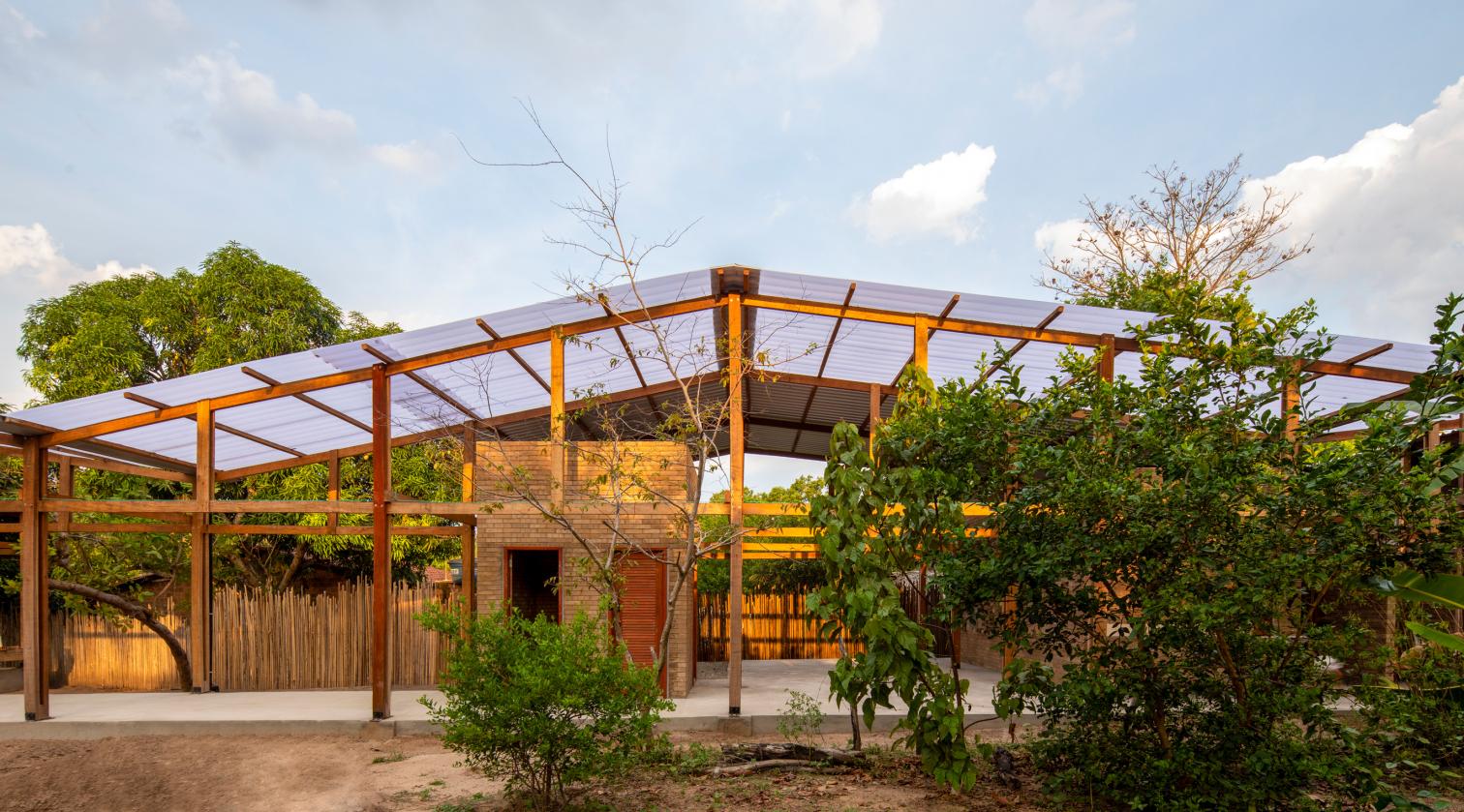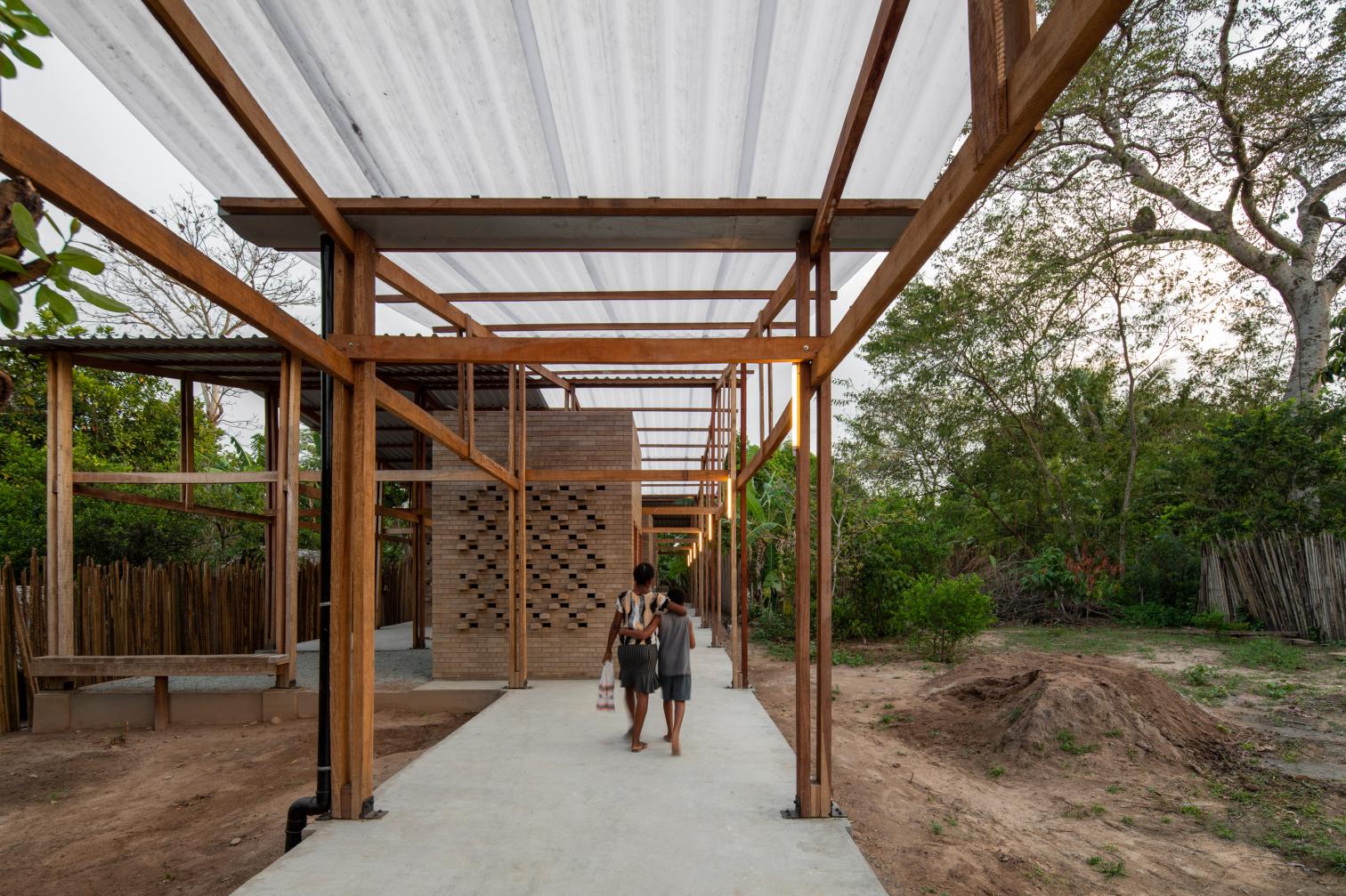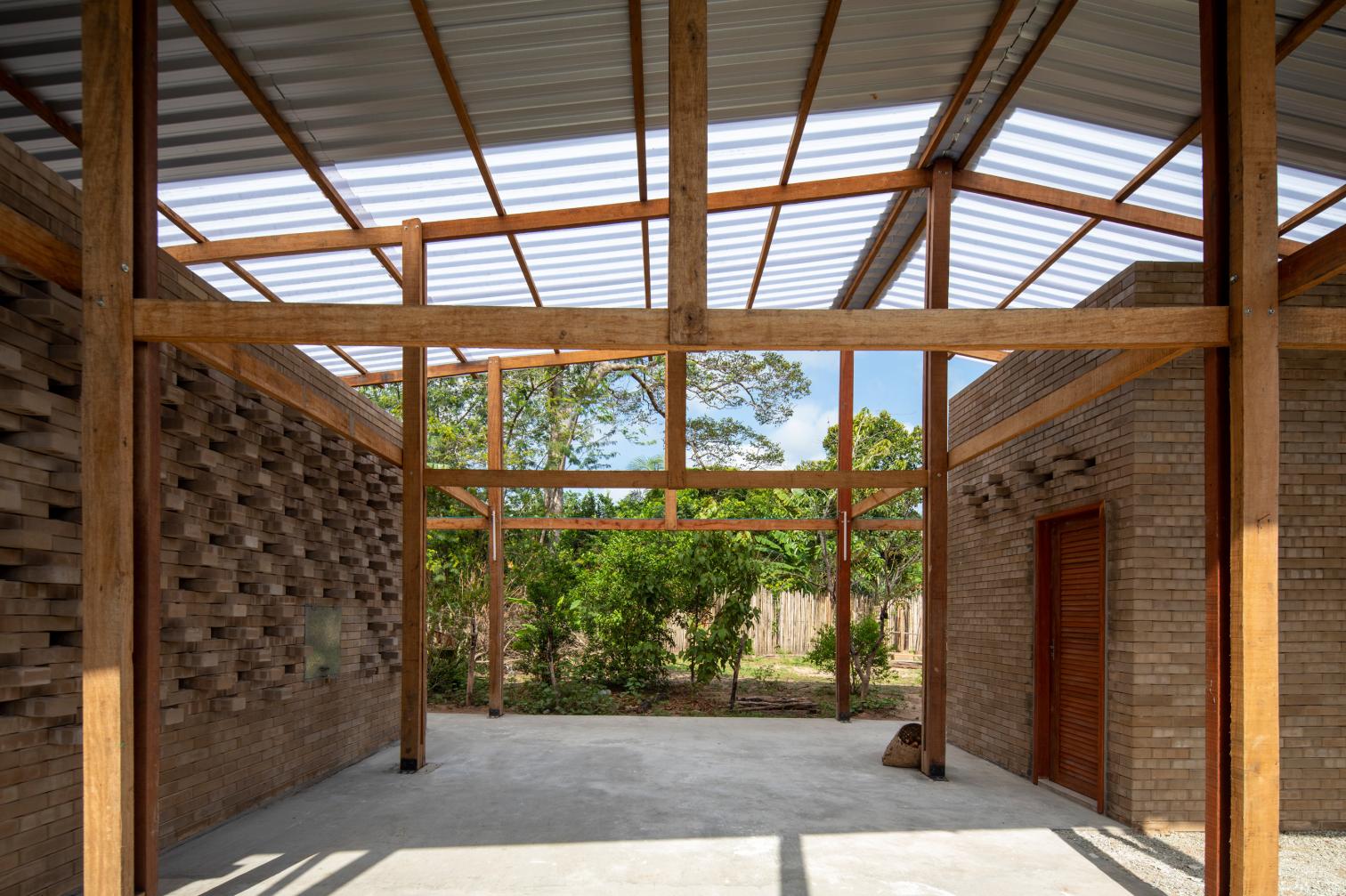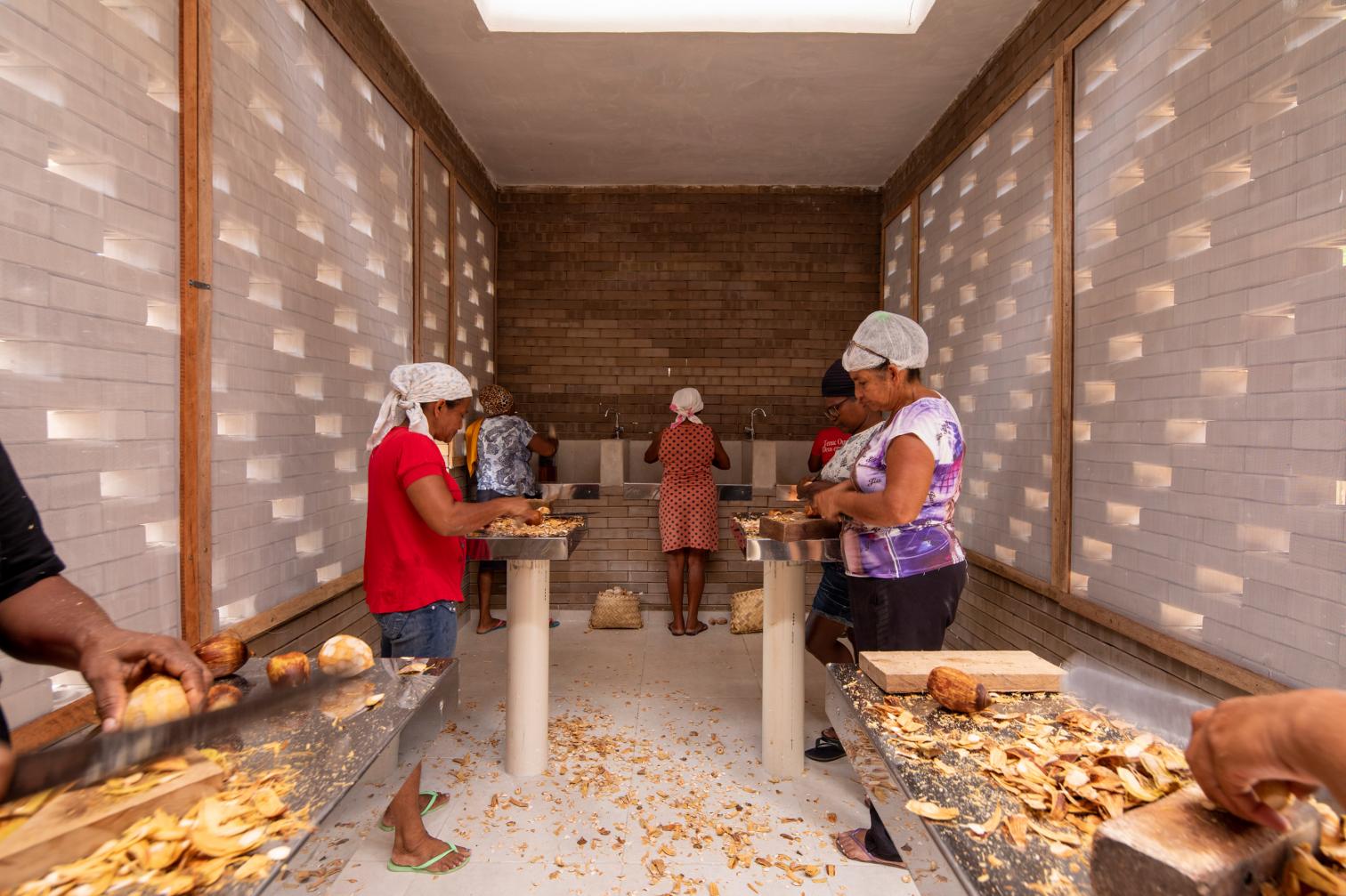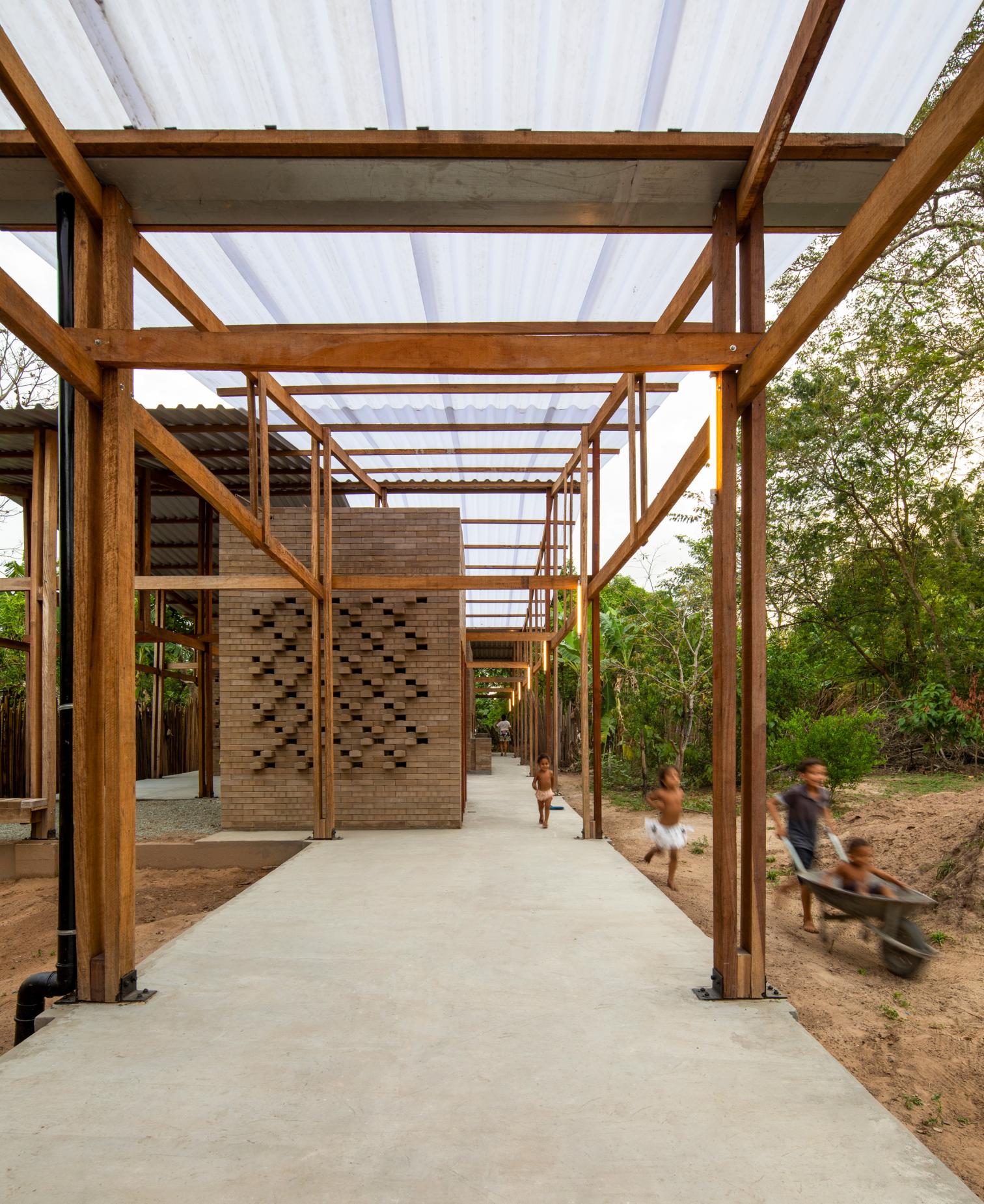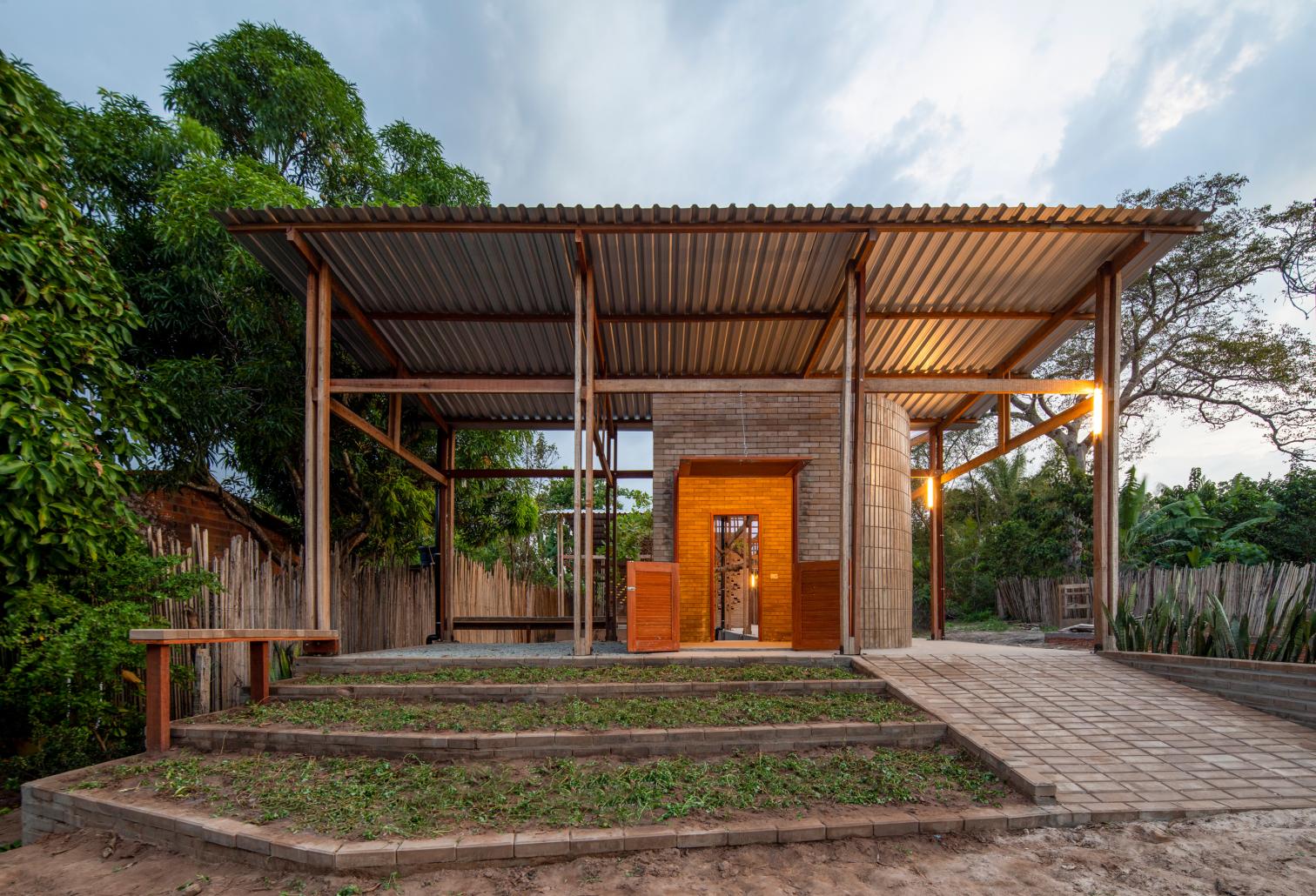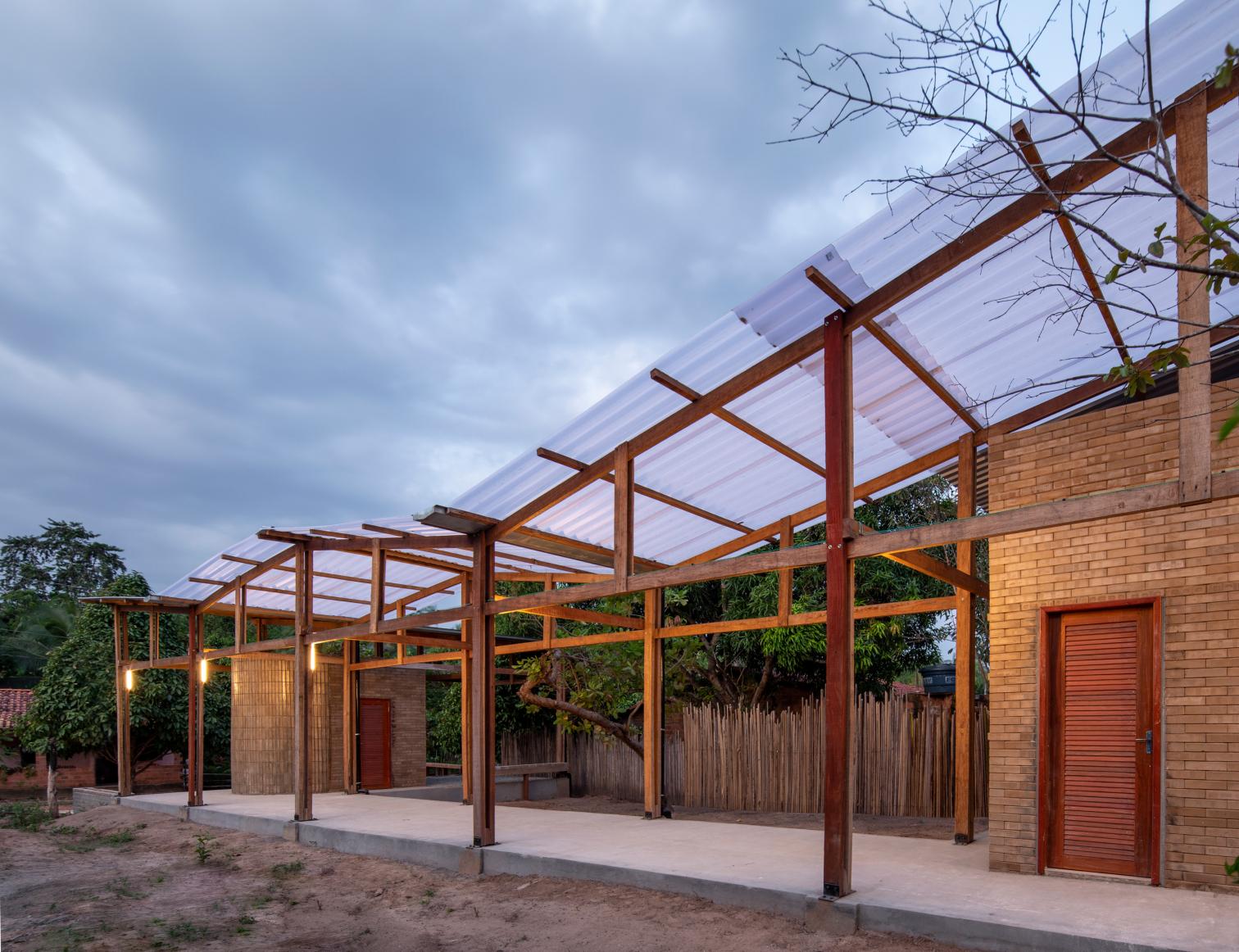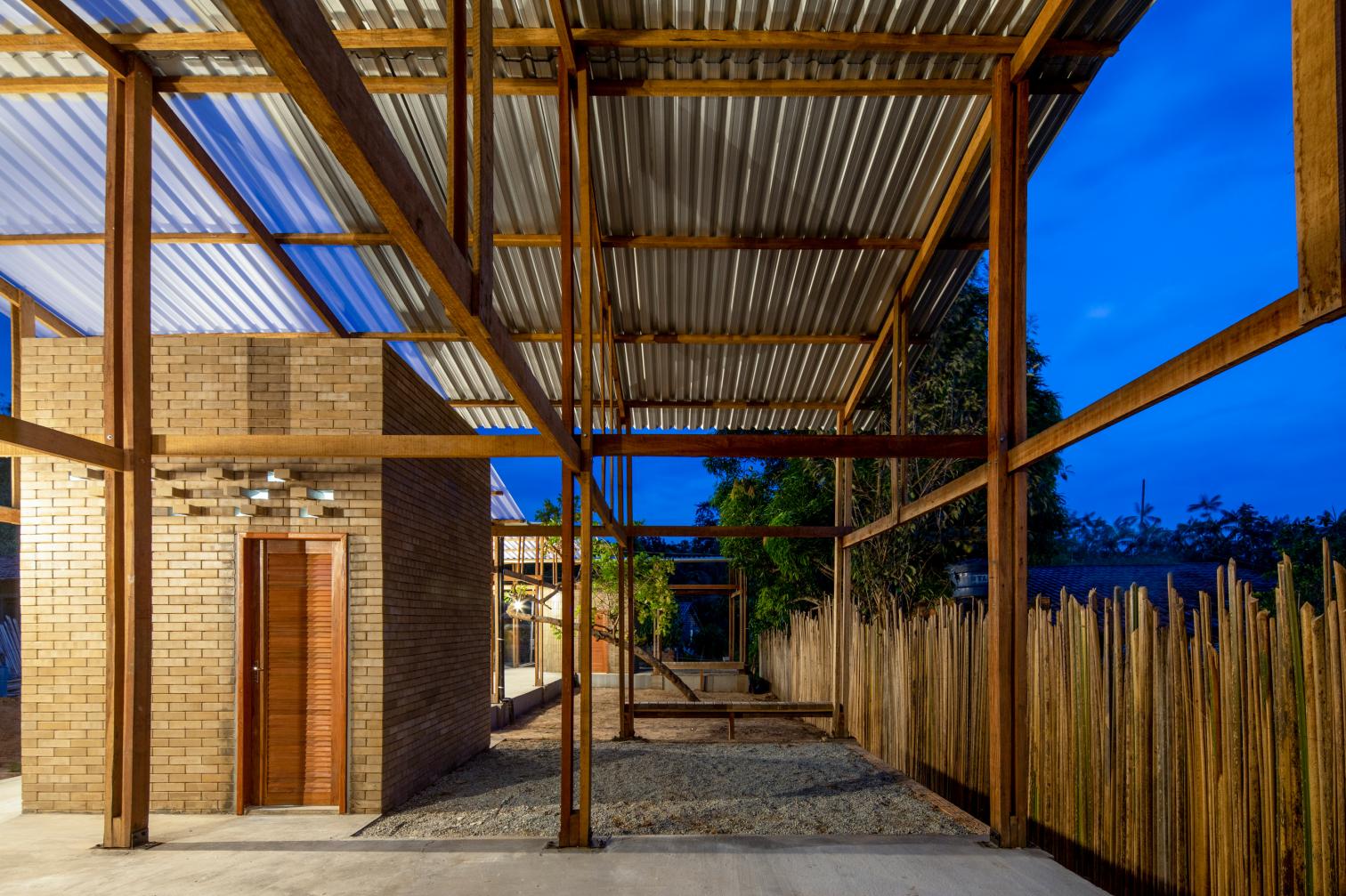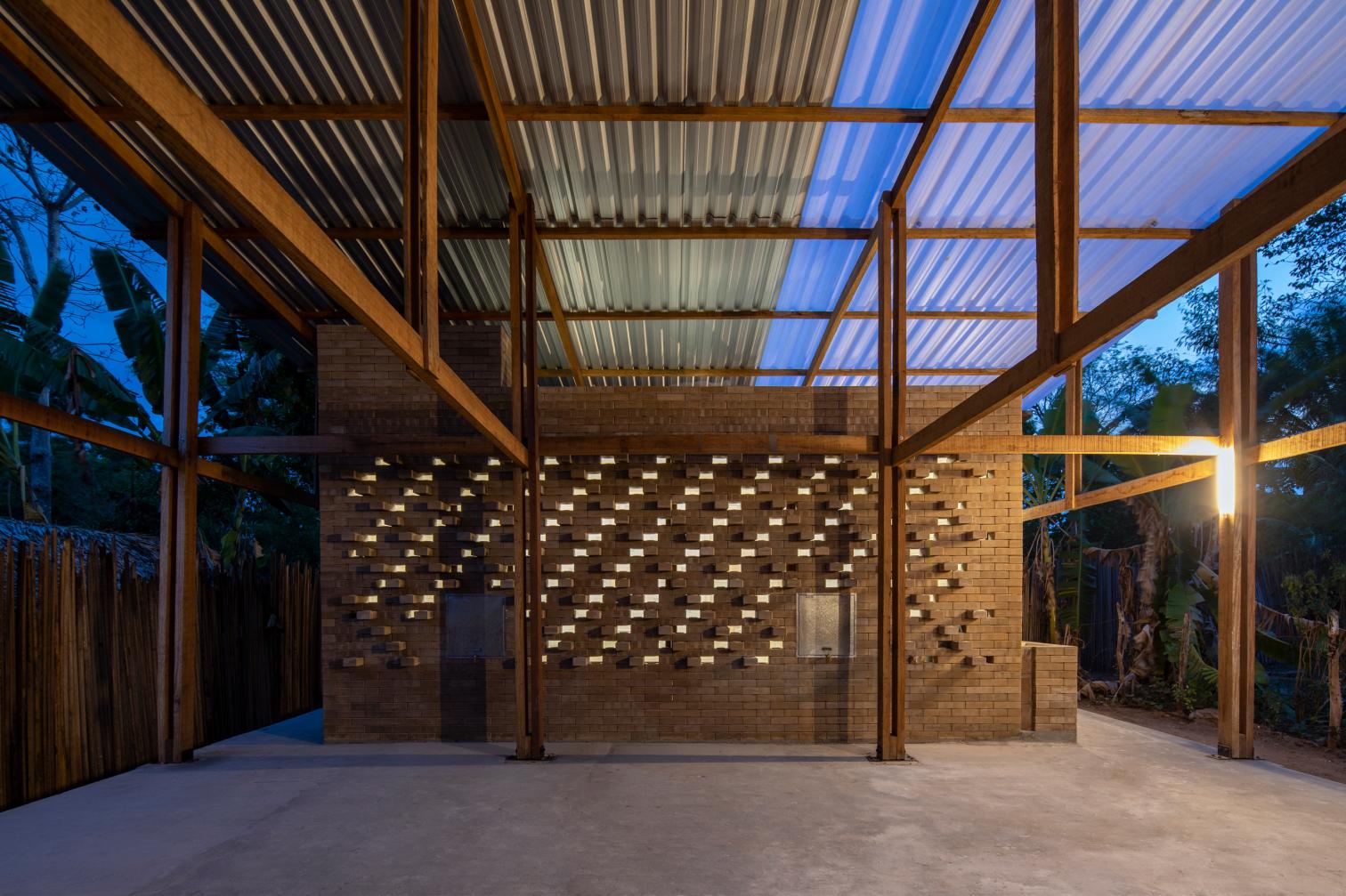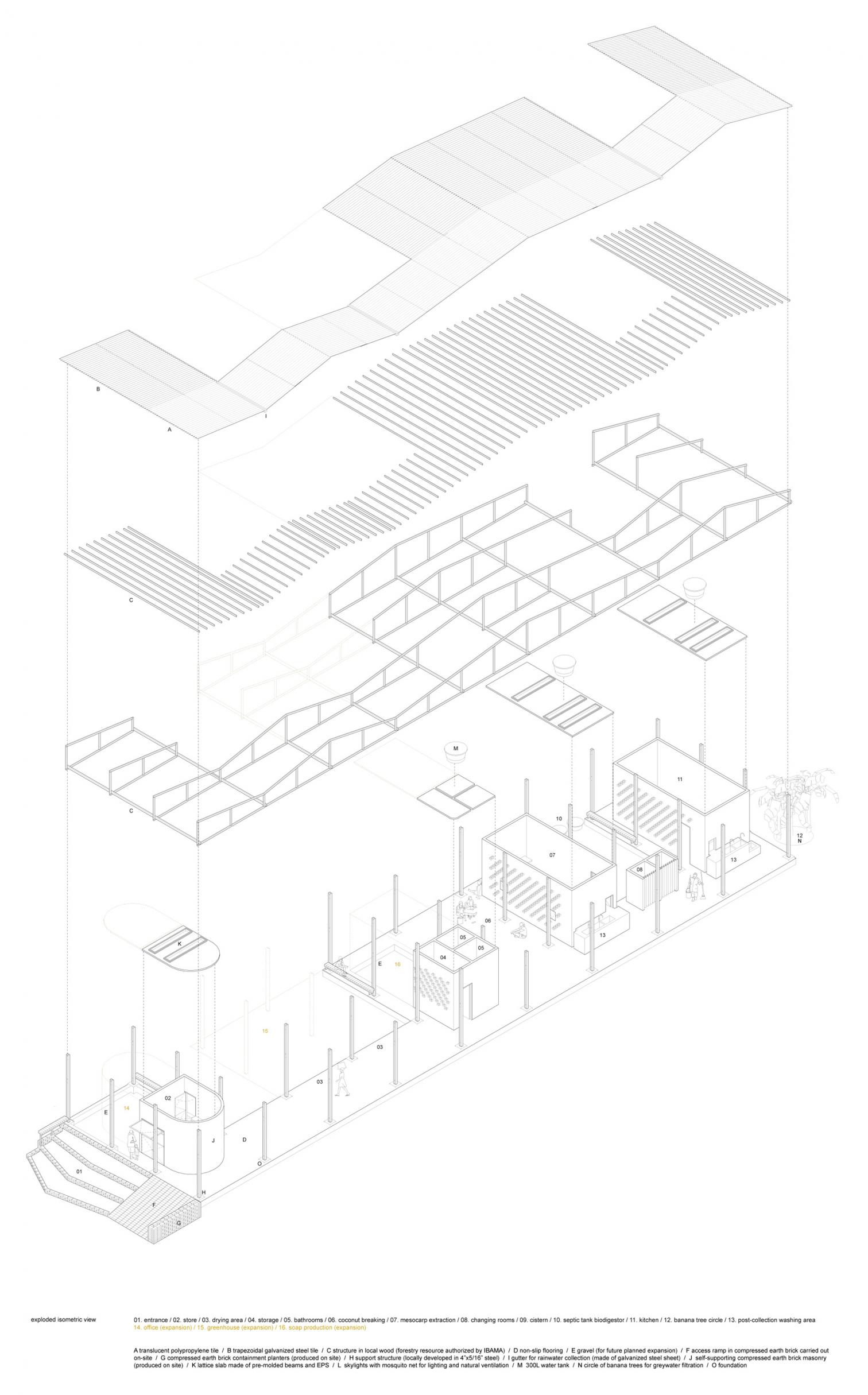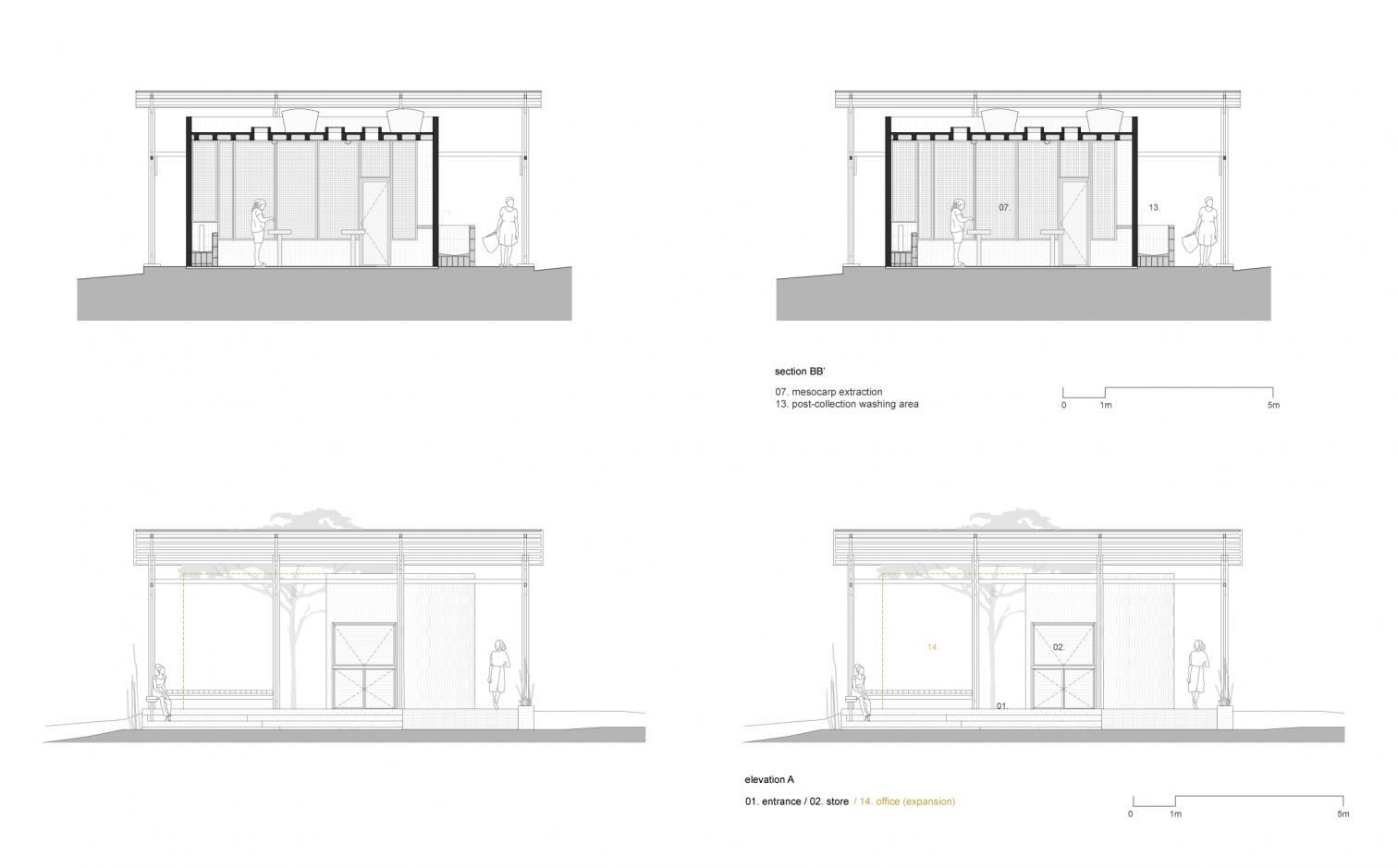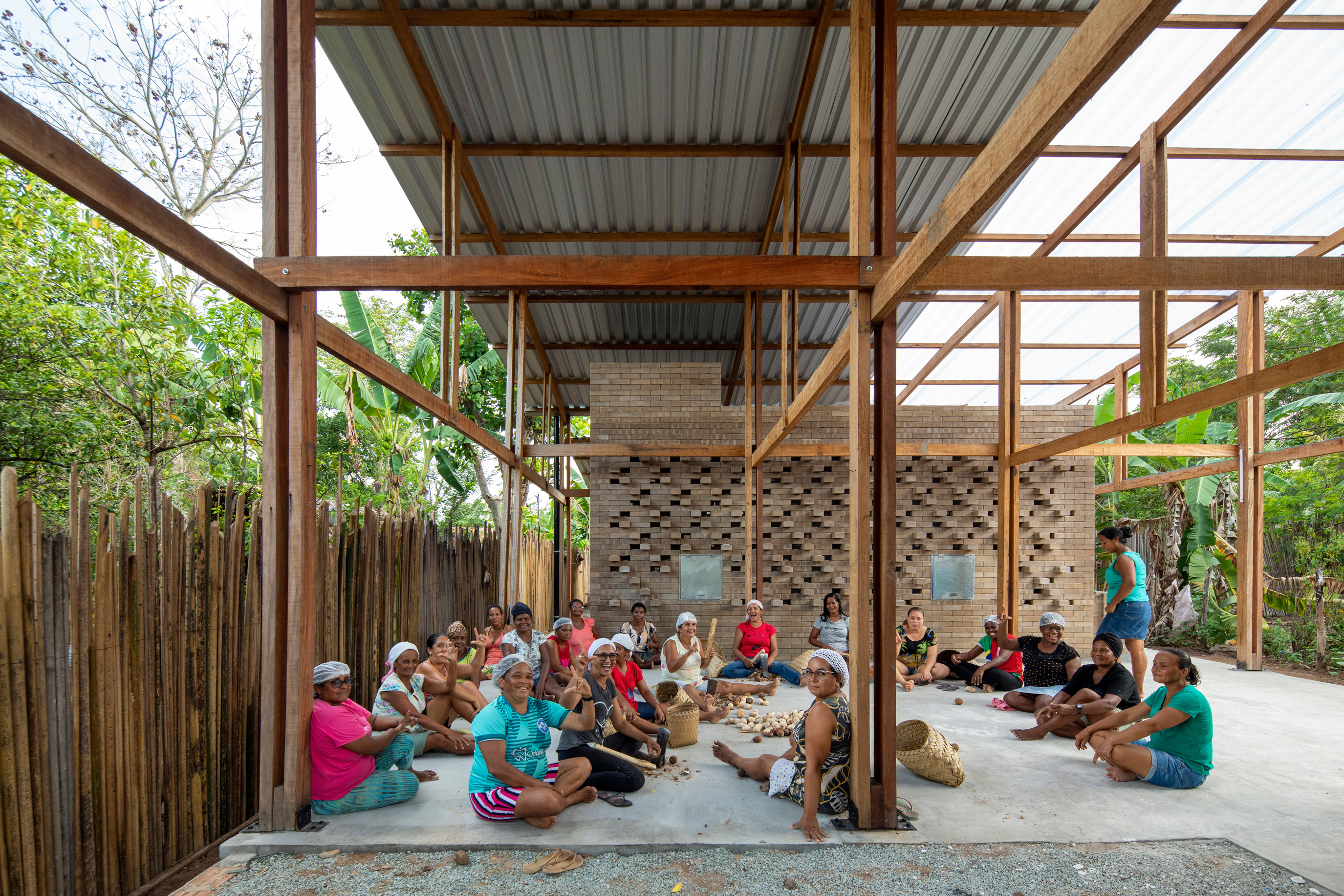Coconut Harvester Center in Sumaúma
Estudio Flume- Type Pavilion
- Material Rammed earth
- Date 2022
- City Sumaúma
- Country Brazil
- Photograph Maíra Acayaba
- Brand Simon Group
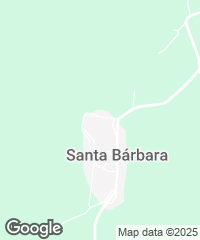
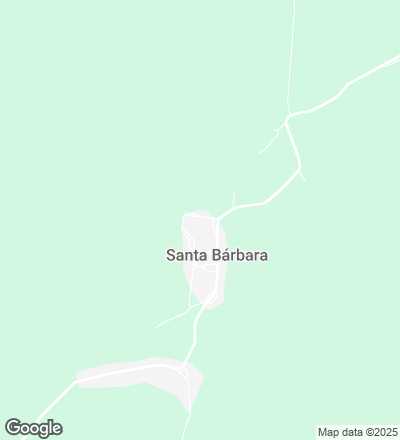
In Sumaúma Village, 35 kilometers from the nearest urban core, the municipality of Vitória do Mearim, in the state of Maranhão, Brazil, is this workspace for babassu coconut harvesters, a project of Estudio Flume, the São Paulo practice of Noelia Monteiro and Christian Teshirogi.
Vast babassu groves spread out in the mid-north of Brazil. Babassu is an important source of income for local communities. The oil of its fruit has much commercial value for the food and cosmetics industries, and is extracted almost exclusively by women.
With a built area of 275 square meters, the project is based on a rereading of building tradition with materials of the region. During the rainy season, because the village is located in the watershed of the Mearim River, it is necessary to travel by boat. Given geographical conditions and lack of access to construction materials, blocks of rammed earth were the chosen material, composed of clay soil, water, and a small amount of cement, manually compressed with a mechanical press.
First the foundations were laid, then the roof was built with a frame of wood from a forestry resource authorized by IBAMA (Brazilian Institute of Natural Renewable Resources), thus also providing a protected area on the building site for the manufacture of bricks during the rainy season. This was followed by the making of self-supporting masonry modules. The roof includes rainwater-collecting gutters as well as graywater-treatment systems.
Workshops were held with the rural communities to learn the productive process of the harvesters, and thus know how to design spaces that would optimize the uses by organizing the productive activities in a dynamic flow around a series of covered and open-air courtyards.
This facility was distinguished in the Collective Places section of the fifth Living Places – Simon Achitecture awards (2024).
